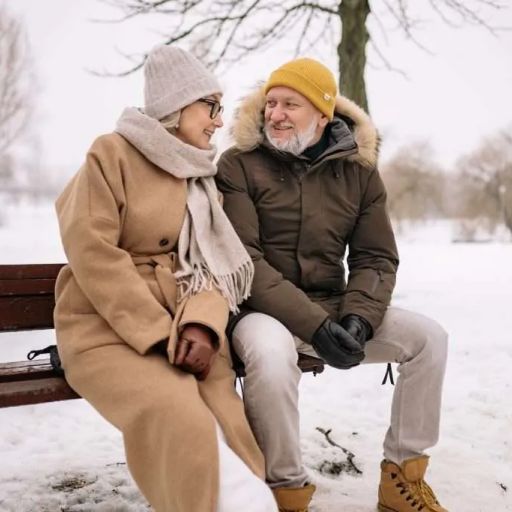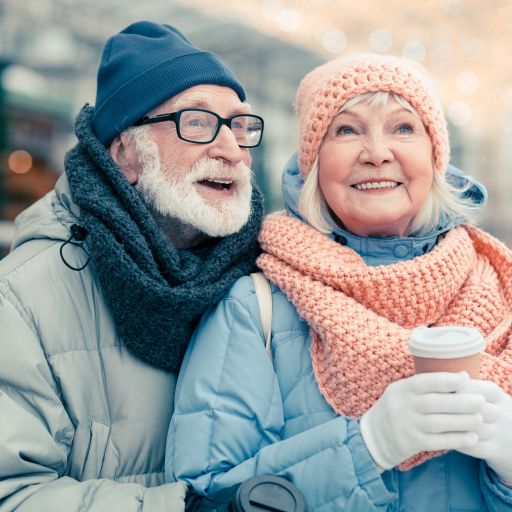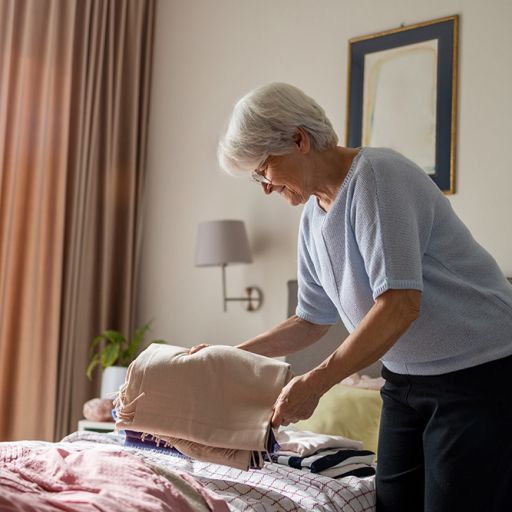Advertisement
With the approach of winter and the gradual drop in temperature, keeping warm has become a crucial issue for the elderly whose physical functions are gradually weakening.
As winter is a season of high incidence of diseases in the elderly, how to scientifically and effectively provide warming measures for the elderly has become a common concern for families and society.
Here is a comprehensive guide to keeping seniors warm in winter to help them stay warm and worry-free through the cold season.
The Importance of Keeping Seniors Warm in Winter
As temperatures gradually drop, winter creeps in. For seniors, winter is a season that requires special attention. Due to the relatively weaker physical condition and reduced resistance of the elderly, the cold weather in winter is prone to cause various diseases, such as colds, pneumonia, cardiovascular diseases and so on.
Therefore, it is especially important to provide warm and worry-free winter health and warmth guidelines for the elderly.
With age, the metabolism of the elderly gradually slows down, the ability of body temperature regulation decreases, and the ability to adapt to the cold is weakened. In addition, the skin thickness of the elderly decreases and the elasticity of blood vessels decreases, resulting in poor peripheral blood circulation and easy frostbite.
Cold winter, the elderly are prone to colds and coughs, which can lead to pneumonia. In addition, low-temperature stimulation will make blood vessel contraction, blood pressure rise, aggravate the burden on the heart, inducing cardiovascular and cerebrovascular diseases.
According to statistics, winter is the high incidence of cardiovascular and cerebrovascular diseases in the elderly. Maintaining a good body temperature is conducive to maintaining normal physiological functions, improving immunity and reducing the risk of disease.
Therefore, providing effective warming measures for the elderly in winter will help them spend a warm and healthy winter.

Measures to keep the elderly warm in winter
In order to ensure the health of the elderly in winter, we need to start from the following aspects to provide them with a full range of warming measures. Keep the indoor temperature at 18-22 degrees Celsius, too high or too low temperature is not conducive to the health of the elderly.
In the cold winter, you can use air-conditioning, heating and other equipment to regulate the indoor temperature. At the same time, pay attention to maintaining indoor air circulation to avoid dryness.
Selecting suitable warm clothing for the elderly should be based on the principles of lightweight, warmth and breathability. It is recommended to choose clothing made of wool, cashmere, down, etc.
Avoid wearing clothes that are too tight and affect blood circulation. Feet are the most susceptible to cold parts of the body, the elderly should pay attention to foot warmth. Hot water can be used to soak the feet before going to bed at night to promote blood circulation. Choose socks with good warmth and avoid walking barefoot.
Advertisement
Winter diet should pay special attention to nutritional balance and calorie intake. Elderly people can increase the calorie intake of food appropriately, such as consuming more protein-rich foods (e.g. chicken, fish and soy products) to help maintain body energy.
Meanwhile, warm beverages such as ginger tea, hot milk and soups not only hydrate, but also provide warmth and boost the body's resistance to cold. Despite the cold weather, older adults should not neglect their water intake.

Older adults should be encouraged to drink regularly to keep their bodies well hydrated, and choosing warm water or hot beverages can help soothe the body's cold senses. A proper diet and adequate water intake are important for the health of older people in winter.
Moderate exercise can help strengthen the body of the elderly and improve their ability to withstand the cold. Indoors, seniors can engage in simple stretching exercises or tai chi, activities that not only improve blood circulation but also enhance physical flexibility.
Appropriate outdoor activities are also beneficial when the weather permits. Elderly people can choose to go for a walk on a sunny day to absorb the sunshine and fresh air.
However, during outdoor activities, seniors should pay attention to wearing appropriate warm clothing and choose the right time to avoid going out in the extremely cold mornings or evenings. Meanwhile, family members should accompany the elderly outside to ensure safety.
At the same time, attention should be paid to choosing suitable exercise venues and avoiding exercise in cold and wet environments. Older people will sweat after exercise and should change clothes in time to avoid catching cold. At the same time, pay attention to replenish water to maintain the body's water balance.

Notes on keeping warm in winter for the elderly
Elderly people should keep warm in winter moderately and avoid over-warming. Excessive warmth will make the body sweat too much, resulting in moist skin, which can easily cause colds and other diseases.
At the same time, excessive warmth will also make the body's immunity decline, which is not conducive to good health. Elderly people should pay attention to safety when using warming products, such as hot water bags, hand warmers, etc. to avoid burns.
At the same time, they should pay attention to electricity safety when using electrical equipment to avoid fire and other accidents. Elderly people should have regular medical checkups in winter to keep abreast of their health conditions.
If they are not feeling well, they should seek medical treatment in time to avoid delaying their condition. Meanwhile, accidents are frequent among the elderly in winter, and having some first-aid knowledge can help save lives at critical moments.
The elderly accidentally fell, do not rush to pick up, should first observe its consciousness, breathing, limb activity and other conditions. If there is a fracture, bleeding, etc., immediately call 120 for help.
Keeping the elderly healthy and warm in winter is a systematic project that needs to start from many aspects, including indoor environment, diet, clothing, exercise, mental health and disease prevention.
With the above guidelines, we hope that every elderly person can enjoy a warm and healthy life in winter and spend the cold time warmly and worry-free. Families and society should work together to create a cozy and safe winter environment for the elderly.
Advertisement





